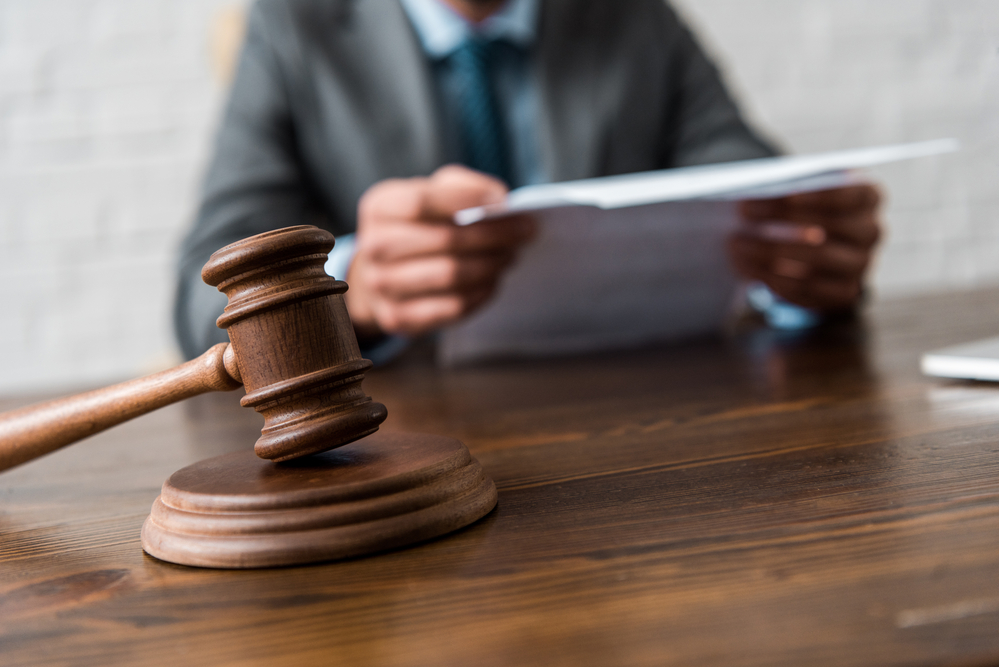Florida Arraignment: The First Step in FWC Criminal Cases
Arraignment is a crucial step in any criminal case, including those involving Florida Fish and Wildlife Conservation Commission (FWC) violations. It is the first time a defendant appears in court after being charged with a crime, and it is where they enter their plea. In this article, we will discuss what arraignment is, its importance, and how it applies specifically to FWC criminal cases. We will also explore the benefits of having an attorney present during the arraignment process.
What is an Arraignment?
Arraignment is a legal proceeding that takes place in front of a judge. During the arraignment, the defendant is informed of the charges against them, their rights, and the potential consequences of a conviction. This is also the time when the defendant enters their plea, which can be guilty, not guilty, or no contest.
The purpose of arraignment is to ensure that the defendant is aware of the charges against them and their legal rights. It also serves as an opportunity for the defendant to understand the potential consequences of a conviction and make informed decisions about their defense.

Arraignment in FWC Cases
Arraignment is just as important in FWC cases as it is in any other criminal case. In fact, FWC arraignments can be even more complex than regular arraignments. This is because FWC violations often involve regulations and laws that are specific to fish and wildlife, which means that defendants may not fully understand the charges against them.
In an FWC arraignment, the defendant will be informed of the specific FWC regulation or law that they are alleged to have violated. This can include boating, fishing, hunting, or other outdoor activities that are heavily regulated by FWC. Defendants may also face charges for violating permits or state laws related to fish and wildlife.
During an FWC arraignment, defendants must understand the potential consequences of a conviction, which can include fines, probation, and other punitive actions. They must also consider the impact of a conviction on their ability to participate in future outdoor activities, as well as the potential harm to fish and wildlife conservation efforts.
What Happens During Arraignment?
During an arraignment, the defendant will be formally charged with the alleged crime. The judge will read the charges against the defendant and explain their legal rights, including the right to an attorney.
The defendant will then have the opportunity to enter their plea. They may plead guilty, not guilty, or no contest. If they plead guilty, the case will proceed to sentencing. If they plead not guilty or no contest, the case will move to the trial phase.
At this point, the judge will consider bail or bond. Bail is a sum of money paid to the court as a guarantee that the defendant will appear in court for future proceedings. Bond is a similar concept, but it is typically provided by a bail bond company, which charges a fee for its services.
Defendants may also have the option to hire an attorney, either before or during the arraignment. An attorney can provide legal advice and guidance throughout the arraignment process.
Importance of Having an Attorney During
Having an attorney present during arraignment is essential, especially in FWC cases. An attorney can provide valuable guidance and support during this critical phase of the legal process.
An attorney can help the defendant understand the charges against them and the potential consequences of a conviction. They can also help the defendant make informed decisions about their plea and their defense strategy.
In addition, an attorney can help the defendant secure bail or bond and provide representation during future court proceedings. This can be especially important in FWC cases, which can be complex and require specific knowledge of fish and wildlife regulations and laws.
Having an attorney during arraignment can make a significant difference in the outcome of a case. An attorney can help defendants navigate the complex legal process and make informed decisions about their defense. This is especially important in FWC cases, where violations can be highly technical and specific and where the penalties can be severe.
An experienced FWC attorney, like Attorney Drew Sando of Sando Law, can help defendants understand the FWC regulations and laws that they are alleged to have violated. They can also help defendants develop a defense strategy that takes into account the specific circumstances of their case, including the nature of the alleged violation and the defendant’s history with FWC.
An attorney can also help defendants understand the potential consequences of a conviction, including the impact on their ability to participate in future outdoor activities and the potential harm to fish and wildlife conservation efforts.
Finally, having an attorney present during arraignment can help defendants secure bail or bond, which can be critical in cases where the defendant is facing significant fines, probation, or other punitive actions.
Seeking Legal Help
Arraignment is an important step in any criminal case, including those involving FWC violations. It is an opportunity for defendants to understand the charges against them, their legal rights, and the potential consequences of a conviction. It is also a time when defendants can make informed decisions about their plea and their defense strategy.
Having an attorney present during arraignment can be critical, especially in FWC cases, where violations can be highly technical and specific. An experienced FWC attorney can help defendants understand the regulations and laws they are alleged to have violated, develop a defense strategy, and understand the potential consequences of a conviction.
If you are facing an FWC violation or any other criminal charge, it is essential to seek the advice of an experienced attorney. Contact Sando Law today to schedule a consultation and learn how we can help you with your case.
FAQs
What happens if I miss my arraignment hearing?
If you miss your arraignment hearing, a warrant may be issued for your arrest. It is important to make every effort to attend your arraignment hearing, and if you are unable to attend for any reason, you should contact your attorney as soon as possible.
Can I change my plea after arraignment?
In most cases, a defendant can change their plea after arraignment. However, it is important to note that changing your plea can have significant consequences, and it is generally recommended that you consult with an attorney before doing so.
What happens if I plead guilty at arraignment?
If you plead guilty at arraignment, the case will proceed to sentencing. The judge will consider the circumstances of the case and any mitigating or aggravating factors before determining the appropriate sentence.
Can I represent myself during arraignment?
Technically, you can represent yourself during arraignment. However, it is generally not recommended, especially in FWC cases, which can be complex and require specific knowledge of fish and wildlife regulations and laws. An experienced FWC attorney can provide valuable guidance and support during this critical phase of the legal process.
How long does arraignment take?
The length of arraignment can vary depending on the complexity of the case and the number of defendants involved. In general, arraignment hearings typically last between 15 and 30 minutes.
Sando Law, P.A. represents clients pre and post criminal charges, clients facing fish and wildlife violations, and clients in need of immigration counsel.

